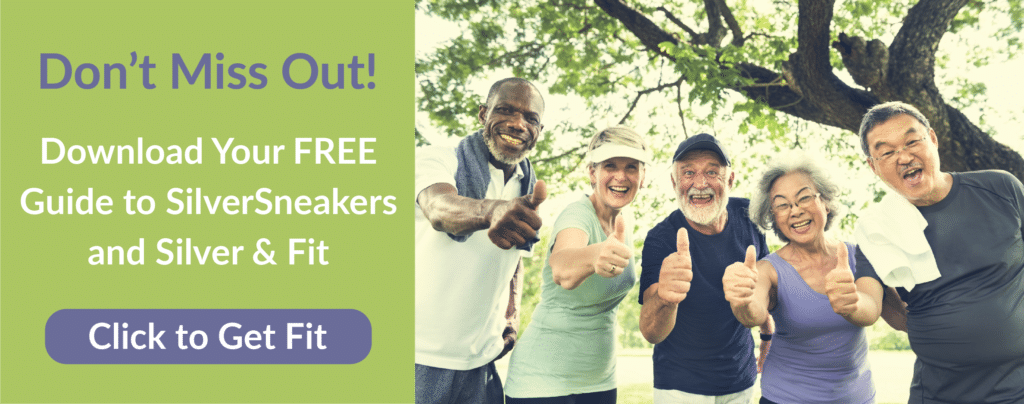Winter Wellness Tips for Seniors and Medicare Eligibles
November 22, 2019Winter often consists of lower temperatures, less sunlight, and more time indoors. The same weather that is bothersome to most can prove to be dangerous for others.
Winter Safety Tips for the Elderly

Seniors and Medicare eligibles face several dangers including falling on ice or snow, frostbite, and hypothermia. Use these winter wellness tips to help ensure you are healthy, safe, and able to enjoy the holidays with your friends and family.
Falling on Ice or Snow
According to the Centers for Disease Control and Prevention, falls are the leading cause of injury and death in older adults. Fall prevention is important outside and in your home, but snow and ice can easily blindside you. Tips to protect yourself from falling on ice or snow include:
- Understand the side effects of your medications. Some medicines can cause dizziness or vision issues, so be cautious when leaving your home.
- Wear weather-appropriate shoes. Make sure your shoes are the right size and have good traction.
- Allow extra time when commuting to your destination. Don’t rush when you’re walking and take small deliberate steps.
- Use sand or cat litter on sidewalks or walkways.
- When going inside, wipe your feet off before you enter. Wet shoes can cause you to slip on dry surfaces.
- Keep your hands free whenever possible. If you are carrying bags, take several trips so you do not overload yourself. Always ask for help if possible.
- Have emergency numbers stored in your phone. Take your phone whenever you leave the house, even on short trips to your car or mailbox. If you fall, you can easily access your phone and call for help.
Frostbite and Hypothermia in the Elderly
As temperatures drop, there is an increased risk of frostbite and hypothermia in the elderly. Frostbite and hypothermia are a result of cold weather and can be difficult to notice. Understanding the differences, warning signs, and symptoms are important when practicing winter wellness.
Frostbite occurs when your skin is exposed during extreme winter conditions. The cold weather causes your tissues underneath your skin to freeze. Frostbite causes you to lose feeling in the exposed area, which is commonly your fingers, toes, nose, ears, cheeks, and chin. If your skin turns white or a grayish-yellow color, or feels firm or waxy, seek medical care immediately.
Hypothermia occurs when your body’s core temperature becomes abnormally low. Hypothermia in the elderly is more likely due to a decreased production of body heat.
Warning signs of hypothermia include shivering, exhaustion, confusion, memory loss, slurred speech, and drowsiness. If you are experiencing these warning signs, take your temperature if possible. If your temperature is below 95 degrees, seek medical health immediately.
Prevention is key to protect yourself from frostbite and hypothermia. Make sure your home is well heated and insulated and be sure to eat healthy foods to fuel your body.
If you need to go outside or travel for any given reason, check the weather, and if possible, avoid extremely low temperatures. However, if you must venture out, wear plenty of weather-appropriate clothing.
Senior Isolation in the Winter
Many seniors and Medicare eligibles may be unable to leave their home in the winter. This can lead to a lack of social interaction. Feeling isolated can disrupt sleep, raise blood pressure, increase the risk of depression, and lower your overall well-being. Tips to prevent isolation include:
- Call, email, or FaceTime friends and family regularly.
- Join a senior community center.
- Consider adopting a pet.
- Find a book or tv show that you enjoy.
- Pick up a new hobby.
- Exercise or practice yoga.
- Consider getting your meals delivered to encourage a healthy diet. Programs like Meals on Wheels are great options.
- Reach out to friends, family, and neighbors.
- If you really struggle with isolation, consider moving into an assisted living facility.
Fire Hazards
Home fires can start at any time but are more common in the colder months. It’s important to practice fire safety and have an emergency action plan in place. Here’s what you should remember:
- Make sure you have smoke alarms in the appropriate areas of your home, especially near any sleeping areas. Test alarms regularly and have spare batteries on hand.
- Never walk away from a room when cooking. Plus, you should always have a fire extinguisher handy.
- Keep curtains and drapes away from any heat source.
- Never leave a burning candle unattended.
- If you have a fireplace, get it inspected annually.
- Place space heaters in an area that is open and clear.
- If you smoke, avoid smoking indoors and around oxygen tanks.
Seasonal Affective Disorder (SAD)
Seasonal affective disorder (SAD) is a type of depression that’s associated with changes in seasons. The disorder begins and ends at about the same time every year, with symptoms starting in autumn and continuing until spring.
Symptoms of SAD
SAD symptoms may include:
- Feeling depressed most of the day almost every day
- Loss of interest in activities you’d normally enjoy
- Low energy
- Having problems falling or staying sleeping asleep (or sleeping too much)
- Changes in your appetite or weight
- Feeling sluggish or irritable
- Difficulty concentrating
- Feeling hopeless, worthless or guilty
- Frequent thoughts of death or suicide*
*If you or someone you love experiences thoughts of suicide, please call the National Suicide Prevention Lifeline at 1-800-273-8255.
Combat SAD With a Winter Fitness Plan for Retirees
Retirees and Medicare eligibles can fight SAD with a great fitness plan. According to Harvard Medical School, fitness is as effective as antidepressants in some cases. Although a gym membership with fitness classes may help, you can get a great workout at home. All you need is some dumbbells, resistance bands, or even a chair.
In some locations, going for a walk outside isn’t an option due to weather concerns. Have you considered going for a walk at the mall? Many indoor shopping centers open their doors to “mall walkers” before the stores open.

Winter Wellness and Medicare
Winter wellness is important in maintaining a healthy lifestyle through the holidays and into spring. However, it’s important to focus on your wellness year around. Medicare Advantage plans have additional benefits and coverage that can help you become the healthiest version of you!
Many plans offer hearing, dental, and vision coverage. Plus, some even offer fitness classes like through SilverSneakers®! If you’re interested in hearing more about these additional benefits or have any questions regarding your Medicare coverage, call us at 844-431-1832 or fill out this form to get in contact with a licensed agent.
This post was originally published on December 11, 2018, and updated on November 22, 2019.

